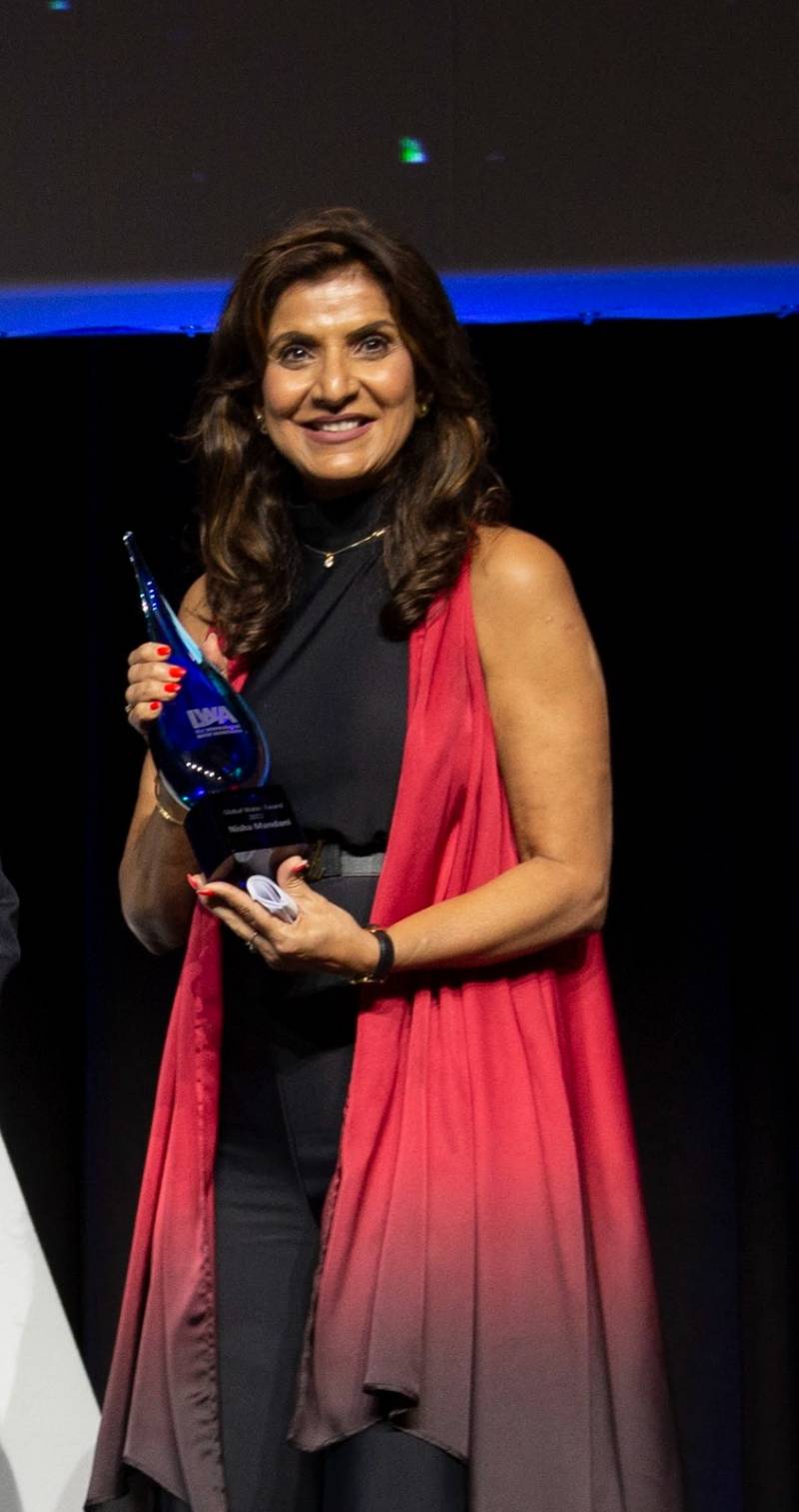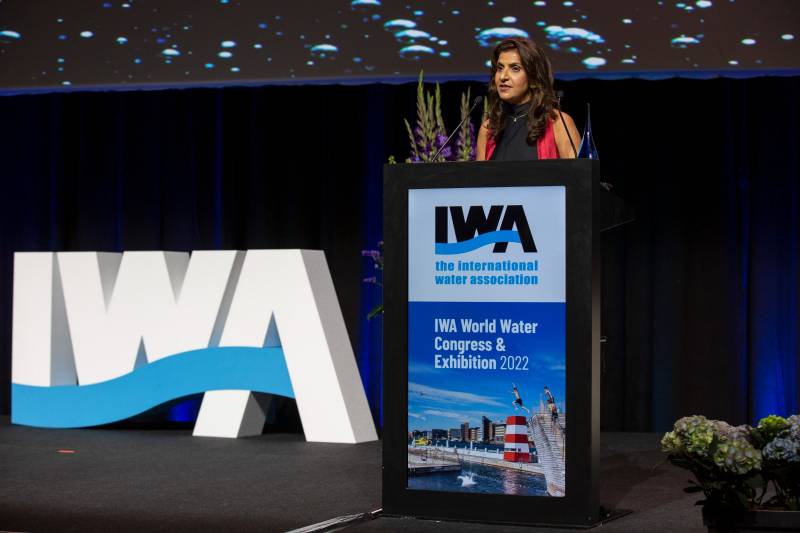1. Introduce yourself and explain what Our Aim Foundation is all about. Also, share some key moments in your life that inspired you to dedicate yourself to humanitarian work.
I’m based in Florida, USA and I have been a social entrepreneur all my life. I remember being 13 years old when I started actively volunteering to support underprivileged children to achieve academic success. Since then, I have never stopped! I did my Masters from Adelphi University, New York in Special Education and Teaching which equipped me to better orient myself as an educationist. Motivated by my experiences, I founded Our Aim Foundation in 2008 to spearhead the mission of alleviating poverty and empowering communities globally. Today Our Aim Foundation has served more than 6 countries contributing to more than 7 Sustainable Development Goals of the United Nations. We have impacted 6 million lives!
One of the most defining features of our nonprofit is that nearly 100% of the funds go directly to the beneficiaries. We are registered in the USA and are now actively making inroads in other countries by formally registering ourselves. Through Our Aim Foundation, we have provided education to over 950,000 individuals, delivered healthcare services to 1.5 million people, and established 2,900 water facilities, saving countless lives and offering hope to millions.
2. What inspired you to start Our Aim Foundation? Can you also elaborate on the core mission and vision of Our Aim Foundation? How do you see it making a lasting impact on the communities it serves?
I envision a world in which all communities have the resources, training, and infrastructure necessary to provide basic needs for their populace. By facilitating improved self-reliance, we will allow people everywhere to lead impassioned and rewarding lives. Our ultimate goal is to assist with life’s necessities so people can focus on the things that make them happy. High quality of life should not be reserved for citizens of a specific country or income level, so we work hard to give everyone in our communities the opportunity to find fulfillment and joy.
Creating sustainable communities is at the core of what we do. We are wholly committed to empowering communities so that they can take of themselves with minimal external support.
3. Which countries does the foundation currently work in, and why did you choose those specific regions?
We are primarily working in Pakistan, Malawi, India, and the USA. We have also supported beneficiaries in Bangladesh, Lebanon, and Turkiyë.
These countries have been selected because they are home to some of the poorest communities.
4. Could you tell us more about the work Our Aim Foundation is doing in Pakistan? What are some of the key projects there?
Our main focus is providing primary education, clean drinking water, fighting hunger, and developing sanitary restrooms in remote villages. We have adopted three schools located in Multan, Tharparkar, and Chitral. Our Aim Foundation is managing these schools. When we first adopted them they were in dilapidated condition. Everything from the furniture to the learning aids was in ruins. We set out to improve the condition of the schools by renovating them. We also helped teachers get the proper training to better achieve the learning outcomes. Today we are collectively serving more than 300 students to acquire free education. Most of them come from the remotest corners of the country and are wholly dependent on these schools for a chance to get a quality education.
Providing clean water is one of the major goals for Pakistan. In the villages we serve, water is scarce, and with every passing year, the situation is getting worse. Pakistan ranks third among the nations facing the most acute water shortages. For me, this is an alarming fact one that requires immediate action. We provide clean water by digging borewells. If the villagers have access to clean water they can expend their resources on other tasks. Children become free to pursue their education as they don’t have to walk laboriously to fetch water.
All year long we also distribute meals and food rations to families in remote areas. Our food program is designed to improve well-being and inspire hope.
We have also initiated our scholarship program where we offer university students partial scholarships to help them cope with the high cost of studies. This scholarship program is essential to delivering higher education which brings the biggest impact affecting their career prospects.
I would also like to mention that during the COVID-19 pandemic, Our Aim Foundation provided vaccination to more than 700 individuals and distributed food rations and meals to those affected by the lockdown.
5. What do you think are the biggest challenges that countries like Pakistan and others in South Asia are facing, and how does your foundation plan to help?
I think the main challenge is illiteracy and lack of quality schools. The literacy rate is merely 58%. In rural areas, it is distressingly low. Lack of education is impeding social and economic development. This is one area where I believe we need to accelerate our efforts.
The other major challenge is water scarcity. As I mentioned before, Pakistan ranks third among the nations facing the most acute water shortages. Even major cities are running dry. Pakistan is also the most susceptible to natural calamities. These calamities coupled with water scarcity directly affect food production. That’s why we hope to ramp up our efforts in delivering clean water and fighting hunger.

6. Are the projects you work on the same in every country, or do you create special programs based on what each place needs?
All our initiatives are tailored according to local conditions. To do that we partner with local organizations and then proceed according to the specific needs of the local populace.
7. How do you believe education, women empowerment, and access to healthcare are interconnected in creating sustainable communities?
I believe it all starts with education. Illeteracy is often the root cause of many social problems. By educating the population you help them cope with so many challenges. Education sets the course for creating empowered citizens who understand their rights and responsibilities. With literacy you have women who are more determined to better themselves. You also get people who understand the significance of maintaining their health. These people are likely to be healthier and suffer from fewer illnesses.
8. What are some of the most significant challenges you've faced in leading Our Aim Foundation, particularly in reaching remote and vulnerable communities?
Remote communities are extremely fragile in the sense that they require constant support. With the lack of health care centers, schools, and roads, these communities need to be constantly engaged to pull them out of poverty. However, once a system is in place we can ensure that they flourish on their own.
9. What keeps you motivated and grounded as you continue to lead such impactful work?
The impact it self and the sheer happiness of people, especially the children, is what keeps keeps me motivated and pushes me forward. I’m also grateful to the support of our precious donors (our angels) who keep pouring in their contributions. Their involvement is what drives this project.
10. What kind of positive changes has Our Aim Foundation made in the lives of people in the countries where you operate?
We have impacted more than 6 million lives. We have empowered more than 1 million women across the world. 380,000 plus meals have been distributed. We have also offered healthcare to 1,450,000 individuals, especially in Malawi. 2,900+ water facilities have been built. We also continue to respond to natural disasters. To date, we have supported more than 1 million people affected by various natural disasters. The impact has been monumental. We have supported so many individuals who deal with intergenerational poverty. We aim not just to end poverty but to create sustainable communities that can thrive on their own.
11. What are your hopes for the future of Our Aim Foundation, especially in Pakistan and the rest of South Asia?
We hope to expand to more countries and launch new programs so that we can help tackle all of the global Sustainable Development Goals (SDGs) as set out by the United Nations.
In Pakistan, we hope to adopt more schools to ensure that we continue our crusade against illiteracy. Education remains as the most critical challenge and I hope we can educate our young generation to tackle the local challenges.
12. Lastly, what message would you like to share with our readers who may be inspired by your story and the work of Our Aim Foundation?
I request all readers to support the vision of Our Aim Foundation to realize a happier future for all of our poor communities. The success of these communities will help propel the country forward. I urge everyone to play their part in helping the less fortunate navigate towards success.



